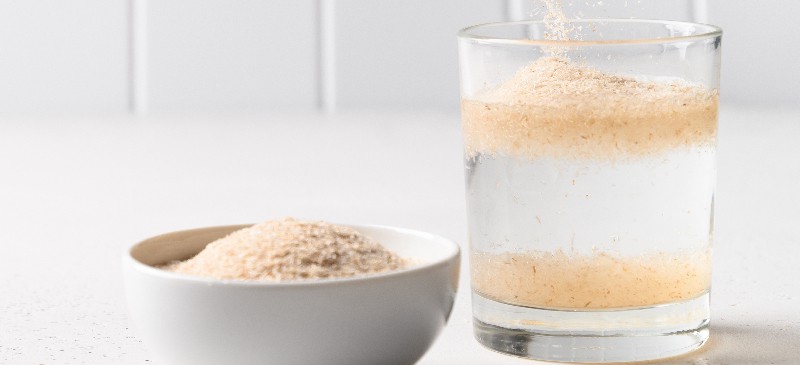This Dr. Axe content is medically reviewed or fact checked to ensure factually accurate information.
With strict editorial sourcing guidelines, we only link to academic research institutions, reputable media sites and, when research is available, medically peer-reviewed studies. Note that the numbers in parentheses (1, 2, etc.) are clickable links to these studies.
The information in our articles is NOT intended to replace a one-on-one relationship with a qualified health care professional and is not intended as medical advice.
This article is based on scientific evidence, written by experts and fact checked by our trained editorial staff. Note that the numbers in parentheses (1, 2, etc.) are clickable links to medically peer-reviewed studies.
Our team includes licensed nutritionists and dietitians, certified health education specialists, as well as certified strength and conditioning specialists, personal trainers and corrective exercise specialists. Our team aims to be not only thorough with its research, but also objective and unbiased.
The information in our articles is NOT intended to replace a one-on-one relationship with a qualified health care professional and is not intended as medical advice.
How to Choose the Best Fiber Supplement for Constipation, Weight Loss & More
September 9, 2024

Do you eat enough high-fiber foods? If not, you may want to consider a daily fiber supplement.
Many people turn to fiber supplements for constipation. There are also hopes that if you take fiber supplements, weight loss may result.
Does fiber help you lose belly fat? Yes, studies indicate that fiber, especially soluble fiber, may to help reduce belly fat.
So how much fiber per day are you even suppose to eat? According to the Academy of Nutrition and Dietetics, the recommended daily amount of fiber is about 14 grams for every 1,000 calories — or about 25 grams for women and 38 grams for men.
In the U.S., a 2022 study showed that the mean dietary fiber intake is 17 grams per day with only 5 percent of the population meeting adequate intake levels. That means 95 percent of Americans do not get enough fiber.
Of course, the best way to obtain fiber is to consume it through a healthy fiber diet, particularly rich in vegetables, fruits, beans and nuts. However, many people struggle with meeting daily fiber goals.
This is when a natural fiber supplement may be a healthy addition to your daily routine.
What is the best fiber supplement? That answer varies depending upon whom you ask, but there are definitely some options that are better than others — and a natural fiber supplement free of harmful ingredients is definitely a smarter choice.
Types of Fiber Supplements
Fiber supplements are some of the best gut health supplements and come in many shapes and sizes. You can opt for an insoluble fiber supplement or soluble fiber supplement.
What’s the difference? Insoluble fiber increases stool bulk, while also helping balance intestinal pH levels.
This variety of fiber promotes regular bowel movements and helps ward off constipation. Insoluble fiber does not dissolve in water and does not ferment with bacteria in the colon.
Soluble fiber, on the other hand, does dissolve in water, and it forms a gel-like material that can help lower blood cholesterol and glucose levels.
You may be wondering about some mainstream or conventional fiber supplements. For example, is Benefiber or Metamucil better?
The Metamucil fiber supplement contains psyllium husk (a natural fiber source), but it also contains questionable ingredients, such as artificial orange flavor, yellow 6 and aspartame. Yellow 6 is a food dye that contains benzidine, a human and animal carcinogen permitted in low, presumably safe levels in food dyes.
The main ingredient in Benefiber® is wheat dextrin, a natural soluble fiber. In addition to wheat dextrin, Benefiber orange also contains citric acid, natural orange flavor, potassium citrate, aspartame, gum acacia, acesulfame potassium, maltodextrin, lactose (milk), triglycerides, sucrose acetate isobutyrate (adds a trivial amount of sugar), modified cornstarch, Yellow 6 and Red 40.
You can choose a fiber powder supplement, which is taken with a liquid like water. This powdered variety can also be added to things like oatmeal, yogurt, applesauce or homemade muffins.
Fiber supplement pills or chewable tablets are other options that can be convenient, especially if you’re looking to take them on the go or while traveling.
Fiber supplements generally contain “functional fiber.” Functional fiber can be naturally sourced, or it can be created in a lab.
Natural fiber sources that are used include lignin (a compound found in plant cells), cellulose (a sugar found in plant cells), pectin (a sugar found in fruits and berries) and psyllium husk (supplemental fiber shown to help lower LDL “bad” cholesterol). Examples of manufactured fibers include polydextrose, polyols (also called sugar alcohols) and maltodextrins.
Natural fiber supplement options like pectin, psyllium husk and inulin make for the best fiber supplements, and one of the absolute best combinations of fiber may be konjac root and acacia fiber. Here’s why:
- Konjac root: Konjac root, also known as glucomannan, is a soluble fiber source from the root of the konjac plant. It absorbs water and forms a gel-like substance that promotes healthy digestion, and it’s been found to help support heart health, healthy blood sugar levels, detoxification and satiety.
- Acacia fiber: Acacia fiber — also known as gum arabic, acacia gum, gum acacia and acacia powder — comes from the sap of the African acacia tree. This form fiber is acts as a prebiotic in the body, meaning it promotes the production of gut-healthy probiotics to improve digestive health.
Health Benefits
The benefits of a high-fiber diet include:
- Healthy bowel movements and reduced likelihood of constipation or diarrhea.
- Decreased risk of hemorrhoids, small pouches in the colon (diverticular disease) and colorectal cancer.
- Lower cholesterol levels, specifically from soluble fiber.
- Potentially reduced blood pressure and inflammation.
- Blood sugar control by slowing the absorption of sugar. Insoluble fiber may also reduce the risk of developing type 2 diabetes.
- Helps healthy weight goals since fiber makes you feel more full which then makes you more likely to eat less and stay satisfied longer.
- Generally shown to extended the length of life by reducing the risk of death due to heart disease and all cancers.
How to Choose the Best Fiber Supplement for You
What is the best fiber supplement to take?
The best fiber supplement depends upon your particular health goals and health concerns.
What is the best fiber supplement for weight loss?
Glucomannan, also known as konjac fiber, may be the best choice for weight loss, according to some research, but studies to date have been mixed.
What is the best fiber supplement for constipation?
Both soluble and insoluble fiber supplements can improve constipation. Psyllium husk powder is a soluble fiber and prebiotic so that’s one option, and acacia fiber is another prebiotic that works well.
Another option is an insoluble fiber like ground flaxseeds.
What is the best fiber supplement for diarrhea?
If you’re struggling with a case of diarrhea, soluble fiber supplements are usually most helpful since they absorb water and increase stool mass.
What is the best fiber supplement for IBS?
Opt for a fiber supplement with insoluble fiber. According to a scientific article published in the International Journal of Molecular Medicine, “Fiber supplementation, particularly psyllium, is both safe and effective in improving IBS symptoms globally.”
What is the best fiber supplement for diverticulosis?
Psyllium is again often recommended for patients with diverticulosis.
What is the best keto fiber supplement?
Of course, the best fiber supplement for keto dieters has to be a sugar-free, low-carb fiber supplement. Some options include acacia fiber, ground flaxseed or a psyllium fiber supplement.
Dosage Recommendations
Read product labels carefully, and do not exceed recommended daily doses of a dietary fiber supplement unless directed otherwise by your health care provider. Daily fiber dosages are typically based on age.
If you are unsure about your ideal daily fiber dosage, talk to your doctor for more information or if you have any questions.
When starting a fiber supplement, start slowly by adding between two and three grams more fiber each day to allow your body time to adjust. Take supplements with a large glass of water, and make sure you stay hydrated throughout the day.
When should you take a fiber supplement?
Fiber supplements can decrease the absorption of other medications so it’s typically advised that you take fiber supplements at least two hours apart from when you take other medications. If taking fiber for weight loss, it’s commonly recommended to take it before meals.
Safety, Risks and Side Effects
Is too much fiber bad? It is possible to take in too much fiber via your diet and/or supplements.
Fiber supplement side effects (also signs of too much fiber in general) can include bloating, gas, constipation, cramping and/or diarrhea.
It’s also possible to experience a decrease in appetite or early satiety. Symptoms like bloating and gas can occur with the introduction of a fiber increase and then get better with time.
Other negative effects of excess fiber intake, especially over 70 grams per day, can include reduced absorption of key micronutrients like calcium, magnesium, zinc and iron. It’s also rare yet possible to experience an intestinal blockage if too much fiber is consumed with not enough fluids.
If you have diabetes, it’s important to know that fiber supplements can decrease blood sugar levels, which may require an adjustment in your insulin or other medications.
Check with your pediatrician before using a fiber supplement for kids. Also check with your health care provider before using fiber supplements if you are pregnant, nursing, have a medical condition (especially intestinal problems, such as a history of a bowel blockage or Crohn’s disease) and/or are currently taking medication.






